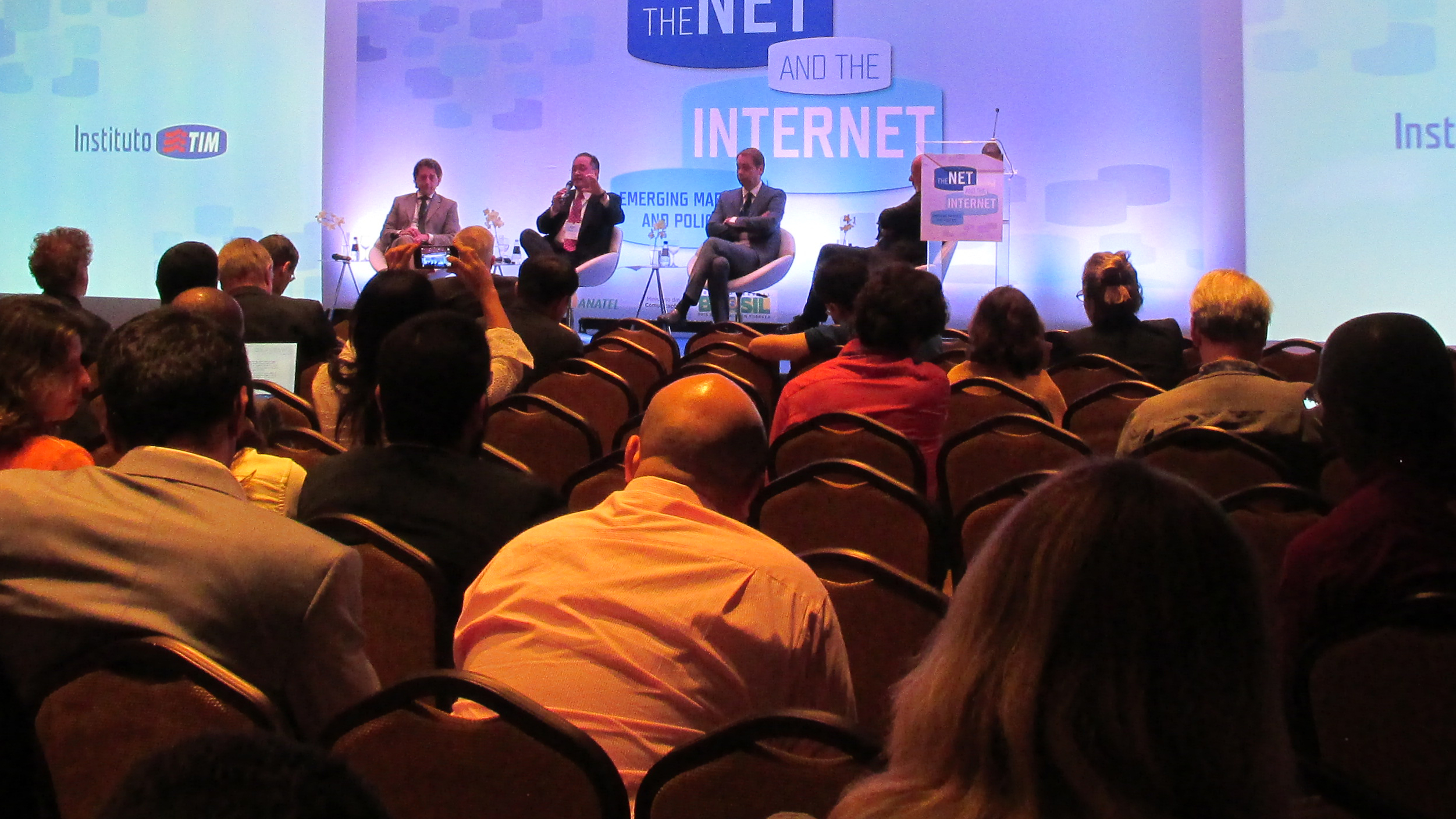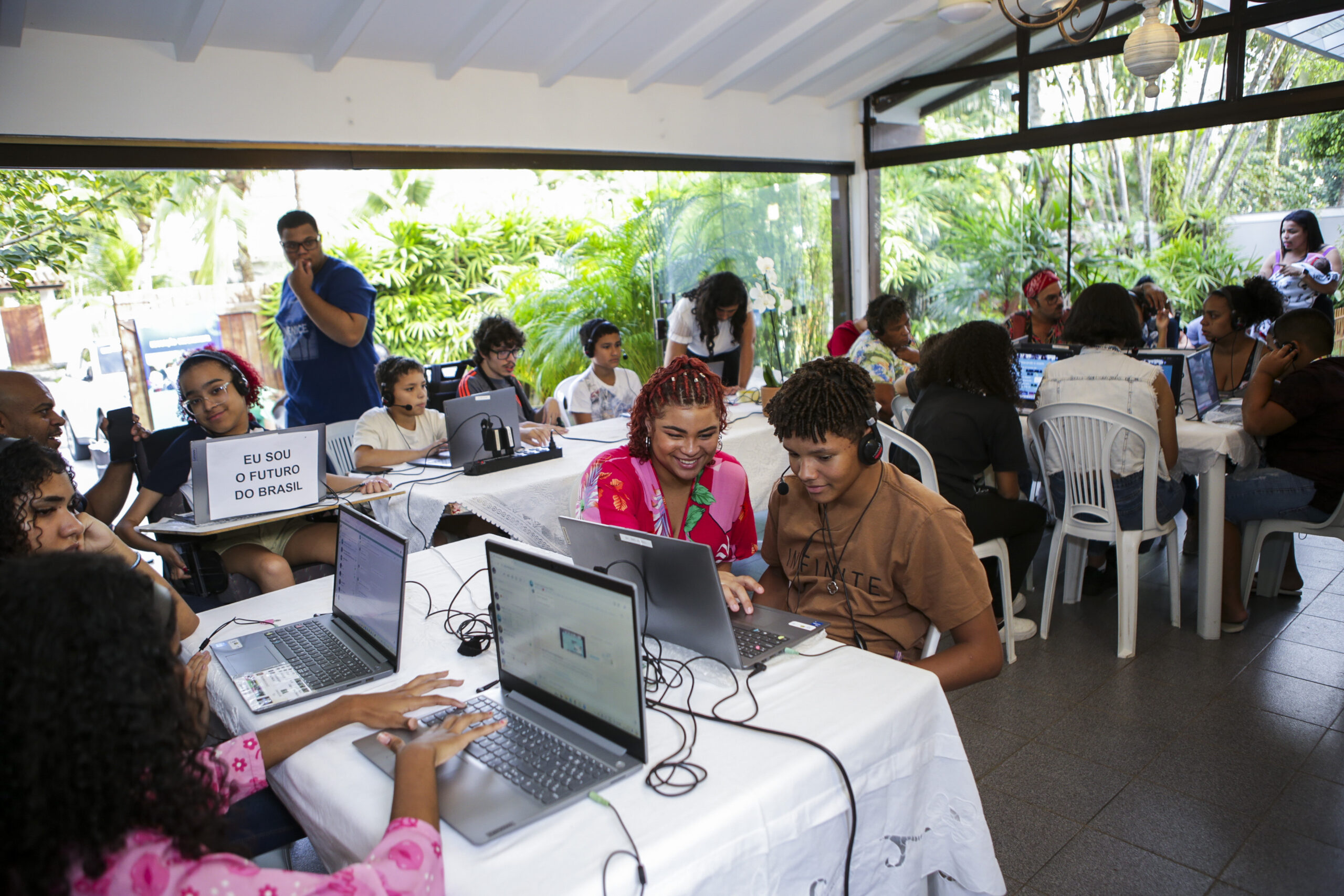
During the three days of the 20th International Telecommunications Society Biennial Conference (ITS 2014), which was held between November 30th and December 3rd in Rio de Janeiro, several Brazilian and foreign experts discussed the future of telecommunications around the world, new media and the paradigm shift brought about by the internet. In plenary and parallel sessions, case studies and international experiences were presented. Among the highlights were the opening session, with the participation of Christopher Yoo, of the University of Pennsylvania, and John Schwarz, of the University of Luxembourg, and the presentation of Eli Noam, of Columbia University.
Christopher Yoo and John Schwarz talked about the evolving architecture of the internet. Yoo, who is a professor in the area of Law and Communications, made a retrospective on the changes that have occurred since 1995 and placed as current network needs new features and structures related to online services, electronic government (e-government), health (e-health ) and online education. John Schwarz, former director of Research and Development of Converged Networks and Services of the European Commission, said that we are in the era of Information and Communication Technologies (ICTs), but soon the world will enter the “nano age”. He also showed that the planet is still poorly connected: 0.2% of the world population has access to the internet. “The user is in Asia, where penetration is very low,” he said.
Eli Noam, who is a professor of Economics and Finance, talked about a hyperconnected society. According to him, in a few years 90% of the people will be connected. “The network will solve problems where other solutions could not solve,” he said. At the same time, Noam stated that even though the amount of information available is greater thanks to the internet, it does not mean that the quality of decision making is better. He said that the internet helps to accelerate the process of reducing job vacancies and that young people are the most affected. At the same time, there are jobs being created precisely because of the advent of the ICTs. “The Industrial Revolution has proved that technology does not reduce jobs, it actually creates them,” he added.
In addition to lectures and roundtables with experts from universities around the world, the ITS 2014 schedule included several case studies related to the regulation of the internet, social media, network neutrality and convergence, among others.






































































































